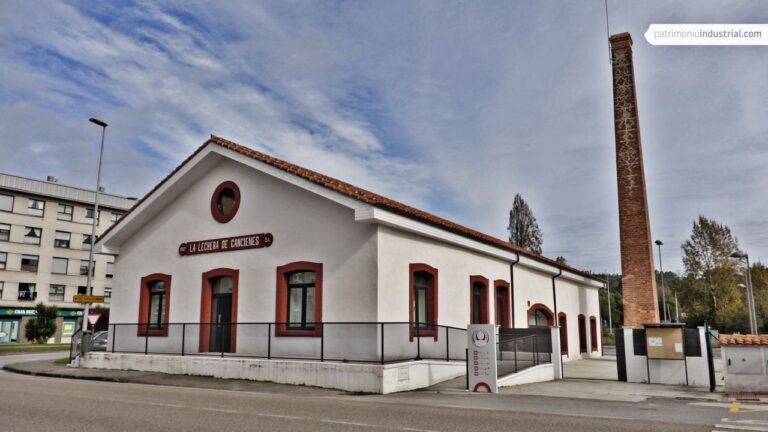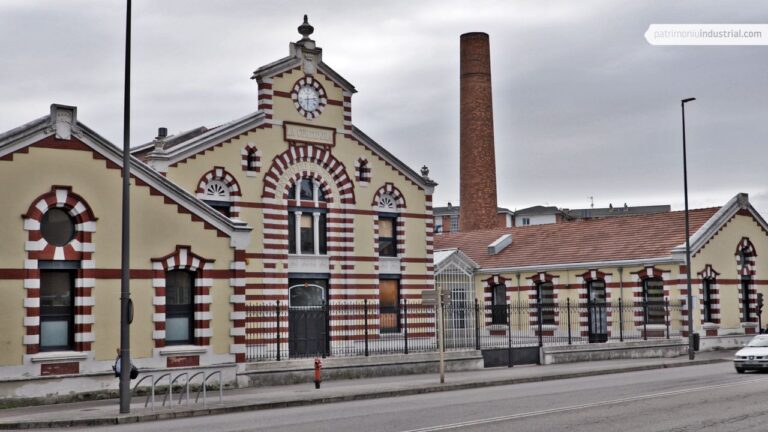Industry
The shirt factory Confecciones Camino S.A. was established in Avilés in 1946 at the request of Segundo Camino Piedra. Built according to a project drawn up by the municipal architect Tomás Menéndez Abascal, the facility consisted of two 10 by 40 metre warehouses, attached longitudinally. One of them was used as a machinery room and the second one for storage. The complex was completed by a building that housed offices, kitchens, the staff canteen, toilets and changing rooms. In the 1990s, production went through a serious crisis, which was brought to an end with the definitive closure of the activity on the 28th December 1995.
After a few years without being used and once the Avilés City Council acquired the facilities, it planned to transform them into a multidisciplinary centre dedicated to creative industries and renamed it Factoría Cultural (cultural factory). To this end, the City Council commissioned the adaptation project to the municipal architect Aitor López Galilea. Developed in three phases, between 2009 and 2012, the works have led to the demolition of the office building, replaced by a new one, so that only the two warehouses for storage and housing of machinery have been maintained, although notoriously altered.
The conversion of the old factory must be understood within the framework of a series of actions carried out in Avilés in recent years. This is the case of those undertaken in the former facilities of the Avilés industrial tannery, the El Águila cereal flour factory, the Fernández Hevia dockyard or the municipal fish market. Even though they are very different from each other in terms of intervention, rehabilitation and reconversion criteria, they all have led to the creation of new facilities.
Factoría Cultural concentrates its activities on digital and audiovisual creation, with spaces for workshops, multi-purpose rooms, rehearsal and dance studios, a library and other services, mostly equipped with recycled furniture, including pieces of industrial machinery from the old shirt factory.















Recent Comments